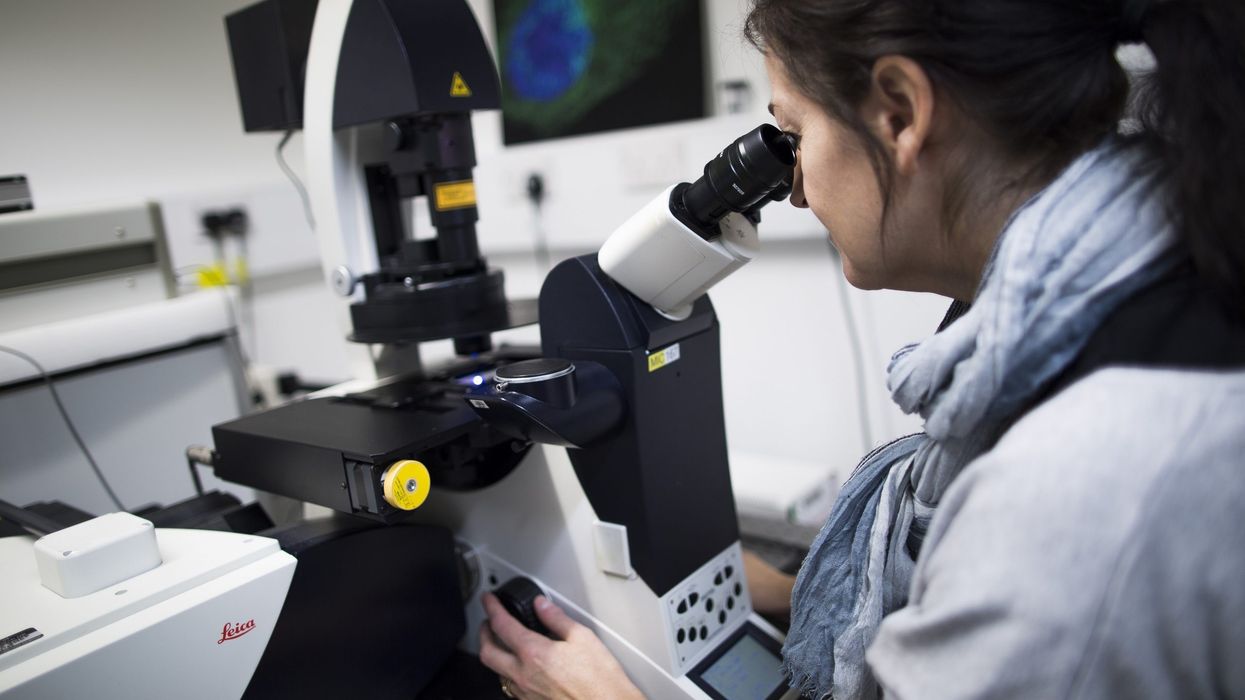Researchers have successfully manipulated macrophages, a type of white blood cells, to target and eliminate solid tumours. These tumours, commonly found in organs like the breast, brain, or skin, pose significant challenges for treatment due to their resistant nature.
While surgery is often the primary option, it may not eradicate all cancer cells, allowing for potential mutations and metastasis.
The new approach described in the journal Nature Biomedical Engineering, not only eliminates cancerous cells, but teaches the immune system to recognise and kill them in the future.
"Due to a solid tumour's physical properties, it is challenging to design molecules that can enter these masses," said Dennis Discher, a professor at the University of Pennsylvania in the US.
"Instead of creating a new molecule to do the job, we propose using cells that 'eat' invaders—macrophages," Discher said.
Macrophages, a crucial component of the immune system, plays a vital role in engulfing and eliminating various invaders, including bacteria, viruses, and implants, from the body.
Their innate immune response also serves as a mechanism for our bodies to recognise and target future invading cells.
Leveraging this learned immunity, researchers aim to develop a cancer vaccine.
However, for a macrophage to effectively attack, it must first detect the presence of the target.
"Macrophages recognise cancer cells as part of the body, not invaders," said the University of Pennsylvania postdoctoral fellow Larry Dooling.
"To allow these white blood cells to see and attack cancer cells, we had to investigate the molecular pathway that controls cell-to-cell communication. Turning off this pathway—a checkpoint interaction between a protein called SIRPa on the macrophage and the CD47 protein found on all 'self' cells—was the key to creating this therapy," Dooling said.
The efficacy of the engineered macrophages was evaluated using "tumoroids," which are clusters of mouse melanoma cells grown in culture plates.
The engineered macrophages demonstrated a cooperative behaviour as they surrounded the cancer cells, dismantled them, and gradually eradicated the tumour.
When tested, the engineered cells successfully eliminated tumours in 80 per cent of the mice. This tumour eradication stimulated an adaptive immune response, with an increase in the production of anti-cancer immunoglobulin G antibodies observed weeks later, the researchers said.
According to the researchers, the engineered macrophage therapy demonstrates enhanced effectiveness when used in conjunction with existing antibody therapy.
They noted that in the future, patients may potentially depend on these cells to not only eliminate solid tumours but also eliminate the need for further treatments.
The researchers further emphasised that macrophage therapy could hold the key to developing a cancer vaccine.
By destroying cancer cells and instructing the body to target emerging cancer cells in the future, it has the potential to revolutionise the battle against cancer.
(PTI)




